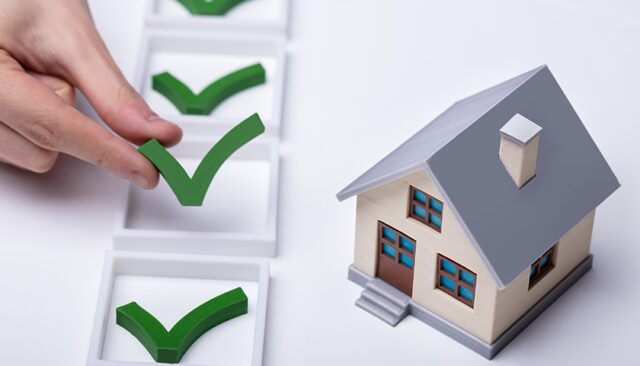
Everyone has certain expectations before buying the house of their dreams. But acquiring a piece of real estate in your own name is not as simple as it may sound. There are so many details and documents that need to be filled and missing any of these can put a damper on your excitement of buying a new house.
The main legal responsibilities that you would have to take care of include a home loan if you have taken one and home insurance. Apart from these, the size of your house, the location of your house, the possession time, and other details matter too. The documentation is manageable, but if you are not prepared, you might feel overwhelmed with all the things that you have to do.
Without further preamble, let us jump into the list of details that you will have to keep in mind before buying a house:
1. Manage your Finances and Know your Budget

Before setting out to buy a house, you will need to have a budget in mind. The higher your budget, the better real estate you can discover. Your budget will have to be decided based on your income and expenses. Make a list of your expenditures and how much you can spend. This will help you figure out your budget and how much you are willing to spend to get a house.
If you are going to apply for a loan, check your credit score and have a handle on your savings. If you feel like buying a house can seriously impact your financial position, then you should wait for a while before initiating a purchase. Know how much you will have to pay in EMIs and whether it would be a good deal for you or not.
2. Be Aware of the Costs of Maintenance, Renovation, and Home Insurance
There are several costs that you would have to keep in mind, whether it is renovation or home insurance. These costs are non-negotiable and add to the price of your home. If you are setting a budget, then factor in these costs as well. The costs will also include installations like that of a circuit breaker. Contact only a reliable breaker manufacturer. Click here for more information.
These miscellaneous costs include the legal fees, taxes, stamp duty, commission, and maintenance charges of the property. While making a list of all the expenses, make sure you conclude all of these and consider whether it would be a financially sound decision for you.
3. The Location

Once you are through with budgeting, it is time to consider the location of the house you are choosing. The site defines how well adjusted you will feel once you move in. Typically, prime real estate locations have the following amenities:
- A secure locality with a low crime rate
- Close to hospitals, educational institutions, malls, your office location, and markets
- Proximity to public transport stations
- Having recreational areas like parks and sports complexes nearby
These factors are advertised as vital because they will directly impact your personal life and social interactions. You will have to live with the people of the new locality, so it is only natural you choose a place where you feel like you fit in. Furthermore, if you are moving into a society, you will have access to gyms, parks, pools, and other utilities and services. Sometimes, paying for them is compulsory, while other times, you choose to pay based on whether you would use them or not.
4. How Big is the House
The location might still be chosen easily because we all have specific areas in mind where we would like to live if we ever upgrade and get a new house. The next aspect to consider is the square footage of the house. The house needs to be spacious enough that you feel all your needs are being met. Install safety devices like switching gear for better protection of your family.
You will need to have the foresight to project whether the house size would suit you even after years pass and your requirements grow. You might be constant with one room right now but consider the possibility of your needs changing and your family growing. Whenever possible, choose a house with an extra room. While not in use, it can serve as a guest room.
5. The Legalities

Imagine having your heart set on a house and then finding out it has some legal complications. Check to see if the properties are legally authorized and have been approved by all the government authorities. This is essential because the property you are going to buy will have to be checked by the bank if you start the loan proceedings. Have the legal documents checked twice and, if possible, also run checks on the credibility of the seller and the developer.
6. Time of Possession
The time of possession varies from property to property. You should know how long you have to wait before you will get to move into your new home. Keeping the waiting period in mind is important because you will have to make your living arrangements accordingly in the meanwhile. If you are planning on selling your current home to get a new home, the time of possession becomes essential for you to time the purchases correctly.
Houses that are ready to move in will cost you more in general as compared to a property that is still under construction. It all depends on your personal preference. If you do not mind waiting, buying a property still under construction is the ideal bet for you. But avoid further delays by completing all the legal requirements and ensuring that you are ready to move in as soon as your house is ready.

The Takeaway
So now that you know everything that needs to be taken care of, you can go ahead and make a checklist of your own. When you are done with the particular task, just go ahead and cross it off your list. This will make you feel more in control of the situation and will help you manage the legal and financial aspects of owning your home.







